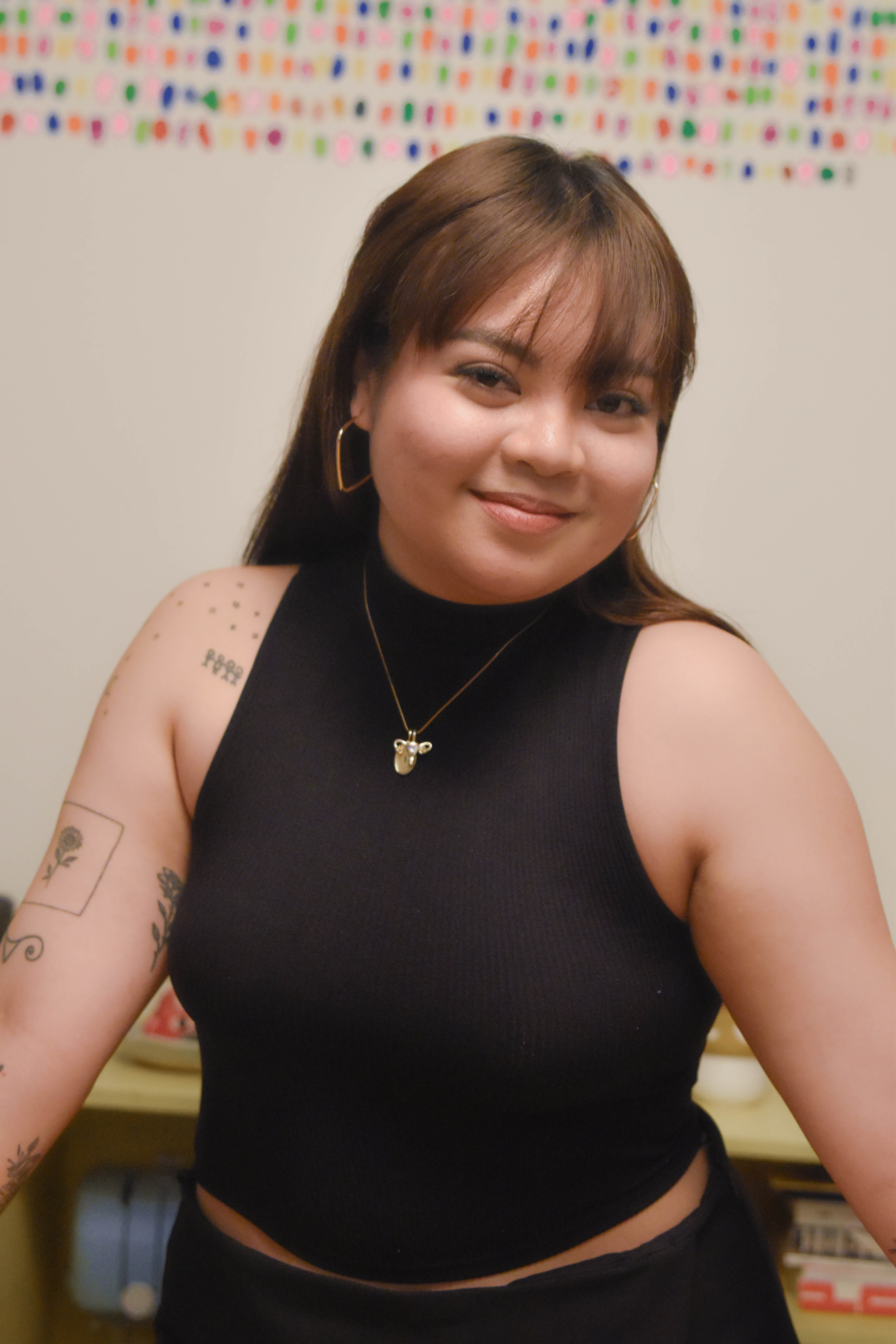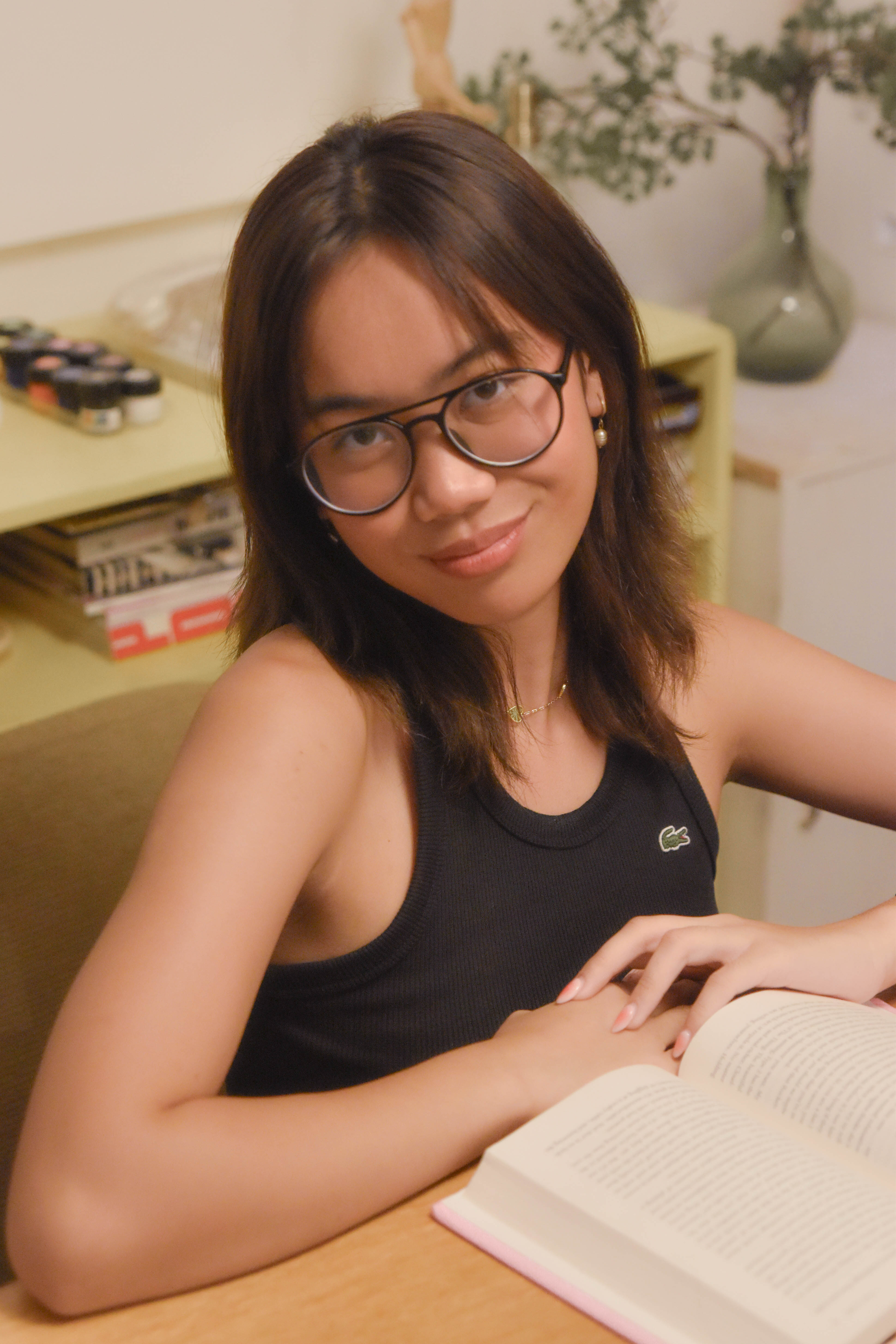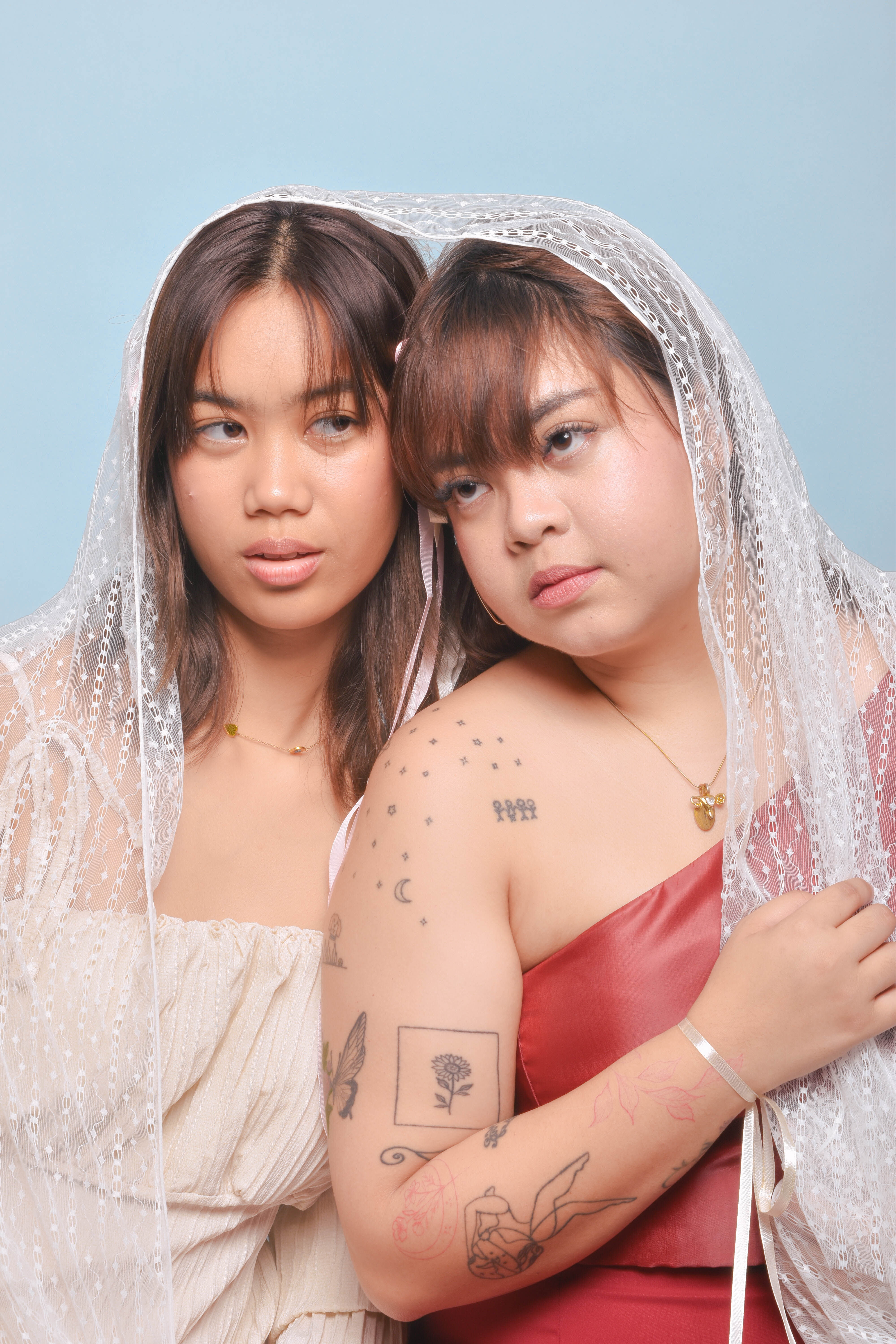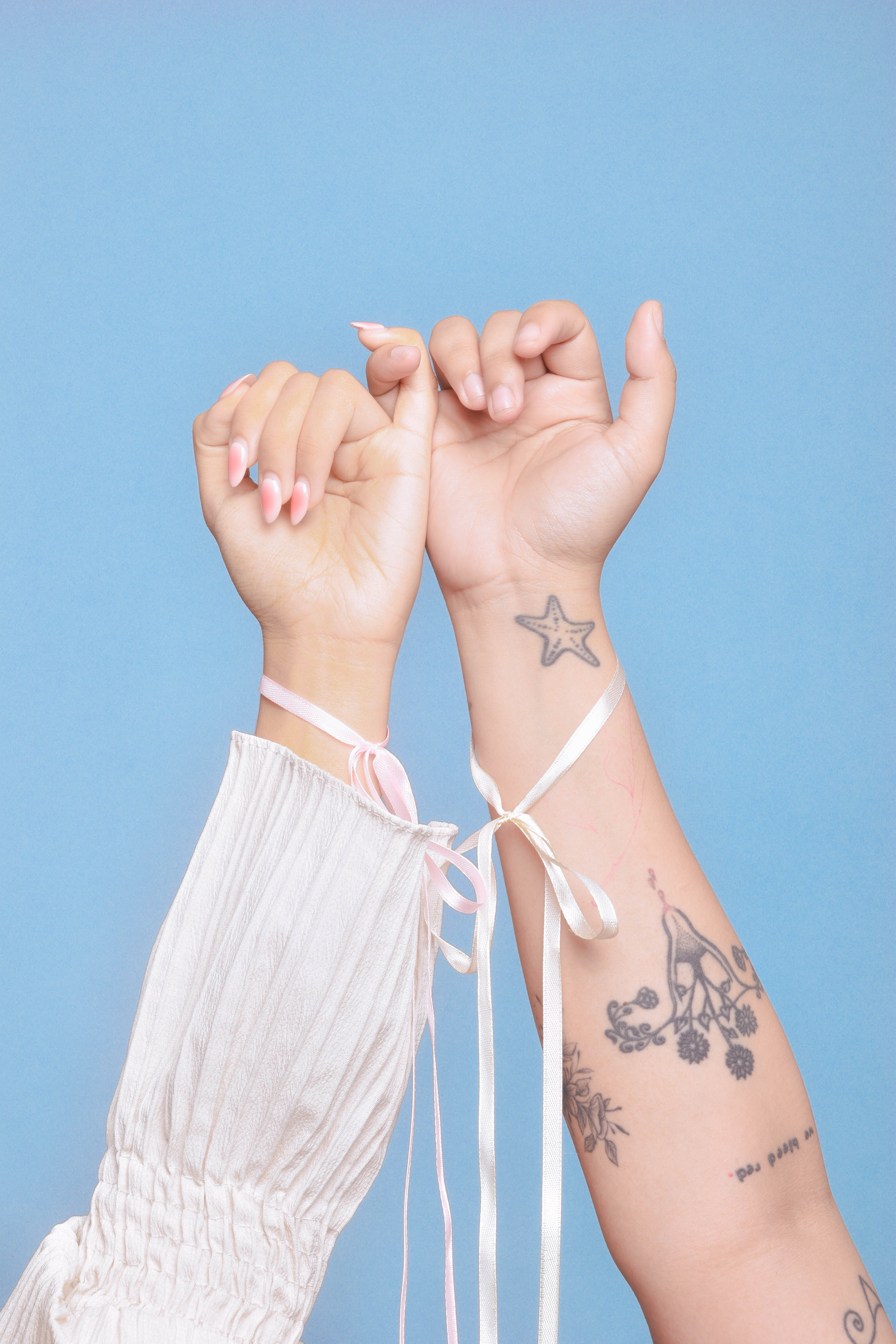Women are used to disguising menstruation in vague euphemisms, from asking, "Meron ka?" to referring to it as "shark week" or "that time of the month.”
I recall hurriedly going to a nearby restroom to hide a napkin, and I’d refer to it as a sandwich or a napper in public spaces — anything but the word “napkin,” careful not to invite shameful glances from people, more so from men.
We’ve been conditioned to feel uncomfortable with our own bodily functions, deeming it as dirty. This is further perpetuated by mass media, where the very few times period blood is spoken about, it is never depicted as it is.
In stark contrast, a women's restroom becomes a sanctuary of sorts. Napkins are exchanged, shared openly and unapologetically. Women support each other, offering recommendations to help menstrual cramps.
Menstruation, though not an obscure concept, carries an unnecessary burden of shame that prompts girls to approach their periods scared and uninformed.

Both founded in 2019, Hiraya Pilipina and We Bleed Red have been changing the ways we talk about menstrual health. The two women behind them are making sanctuaries bigger for every Filipina, ensuring that period care is not only a privilege but a basic right.
Cleo Loque, who is currently in her third year of college, started Hiraya Pilipina to promote women empowerment. Starting with affirmation-laden statement shirts, her venture evolved into period and intimate wear, all centered around advocating for oneself. They recently introduced bamboo pads, which are both gentler on the skin and the environment.

Looking back at her experience with periods growing up, it would have made so much difference to Cleo if she was aware of period products available in the market and how to use them. “Mawawala na ‘yung takot na kapag gumamit ka ng menstrual cup, hindi ka na virgin. Kapag na-debunk agad ‘yung ganoong myths sa utak mo when you’re younger, it would have helped me a lot as a young adult (in) knowing my body more.”
We Bleed Red was first and foremost a campaign started by Gianinna Chavez. It had a seemingly simple objective in mind: to normalize period stains or tagos by showing them on women's underwear — a step to normalize the sight of period blood. And further proving the fact that periods are stigmatized, the campaign was met with shaming comments online.
This only made Gianinna want to intensify her campaign’s messaging, “There’s so much work that needs to be done and conversations that need to start. Menstrual education needs to be louder and more precise,” she says. But more than anything, We Bleed Red is here to fight period poverty and give Filipino women, in consideration of their own contextual backgrounds, access. It rightfully acknowledges that not every home is a conducive environment for women in their periods and that not every woman has immediate access to period care, which they are addressing one event at a time.
Cleo, who started a business at a young age of 15 and has evolved her brand since, makes sure the Filipina woman knows a brand is out there to represent them. In a mission to redefine period care, Hiraya Pilipina’s packaging is both provocative and a “conversation-starter,” as Cleo would call it. “When I was working with my in-house designers, I wanted (the packaging of our period products) to have a vulva talaga, parang shaped like a flower. And they really encapsulated my vision and translated it into our packaging so perfectly.”

This is what sets Hiraya Pilipina and We Bleed Red apart. They depict menstruation and the female body as they truly are, without resorting to the clichéd and unrealistic use of blue liquid as a substitute. Menstrual blood is, in reality, red, with varying textures and consistencies, all coming from the shedding of a person’s uterus lining. It can be a painful experience for some, while for others, their cycles can stretch over weeks to months, interfering with their daily lives. And there are those whose irregular periods affect their ability to conceive. There’s no homogenous experience for every menstruating person, but all of these diverse experiences have to be normalized and talked about.
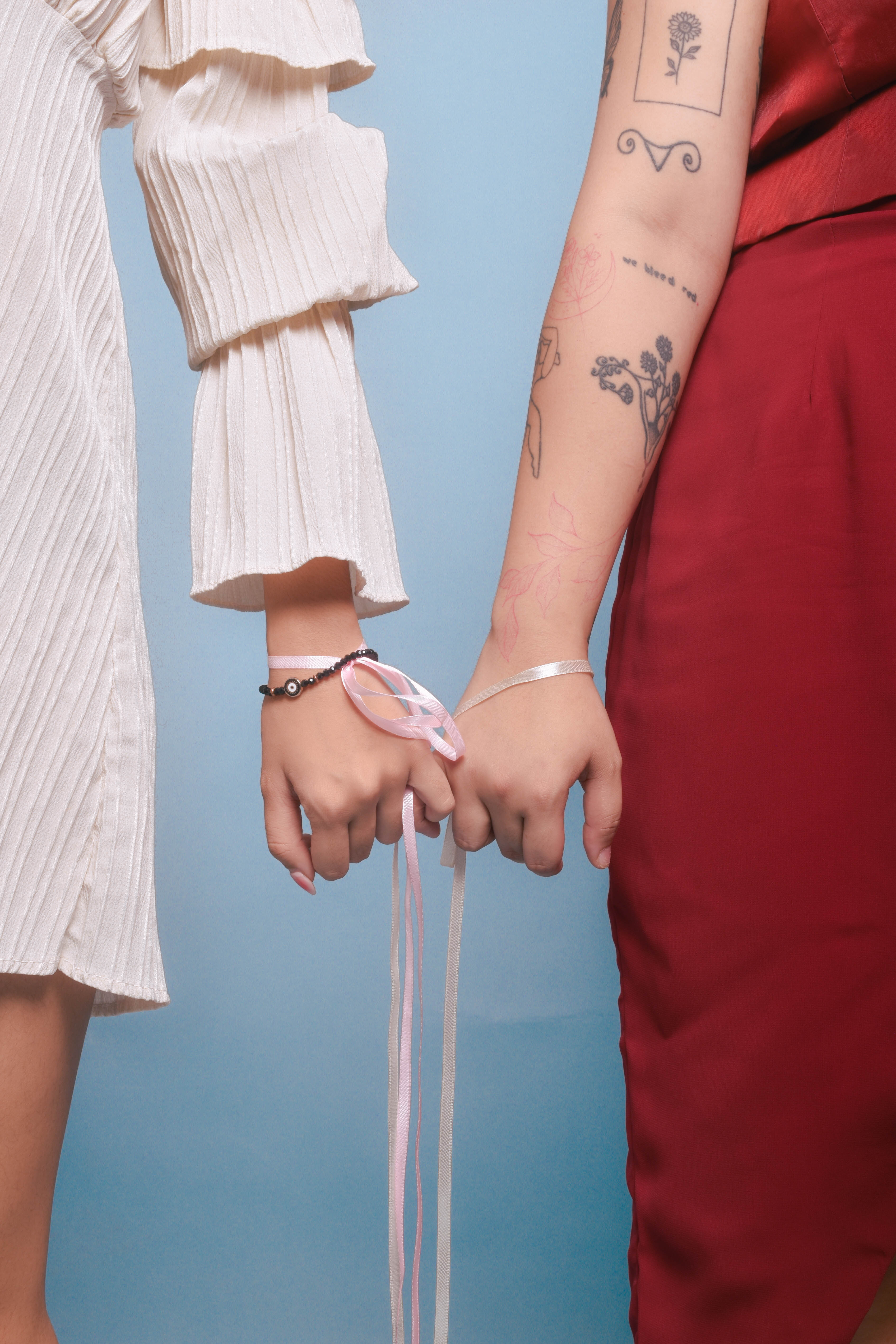
Growing bigger than oneself, rooted in the same vision
Both of them later found the brand and organization they individually started have become so much bigger than what they initially imagined it to be. “When I started leading that team, that’s when I realized that my business is making an impact, not only on our customer’s lives but most especially to the team that was working behind the brand,” says Cleo.
Cleo also knows how important it is to have menstrual benefits. “We give out two boxes of pads every month to our female employees, and I realized how important it is for other companies to do that as well. Because all women bleed, even just two boxes of pads every month will help us. I think that simple benefit, I wanna put it out there as a callout, especially to huge corporations.”

When Gianinna received hundreds of applications for volunteers for a We Bleed Red event, this was when it dawned on her: “May nakakaappreciate, nakakasympathize, nakakarelate talaga. (This work is) something worth doing.” She shares that the start of any advocacy is always the people. “If you know you can help, then help.”
The future Cleo and Gianinna are shaping promises to be brighter and more inclusive for all — the kind we wish we had when we just started menstruating.
Gianinna, who juggles full-time work, a podcast, and running an advocacy organization, has just also released a children’s book called Si Clara Ay May Regla Na, which offers the guidance we all wish we had back then. “Kahit na pambata siya, nilagyan ko na ng tampons, menstrual cups, menstrual disc saka period underwear as options.”
When asked what her dream is for the Philippines, she envisions public CRs and barangay health clinics with free menstrual products.
Cleo shares how she tries not to get pressured as she’s already happy to get invited into rooms where changes can start. “It’s really fulfilling. I could be the dumbest person in a room because I’m so young and that’s okay. To be included in the conversation is already enough for me.”
It’s safe to say Hiraya Pilipina and We Bleed Red have just gotten started. With their vision for the Philippines as firm as their beliefs in womanhood and period care, Cleo and Gianinna are only out to do more great things. The future they are shaping promises to be brighter and more inclusive for all — the kind we wish we had when we just started menstruating.
Photos by Rylle Dejomo
Produced by Andrea Panaligan
Assisted by Oleen Florendo
Shot on location at Studio Segui


